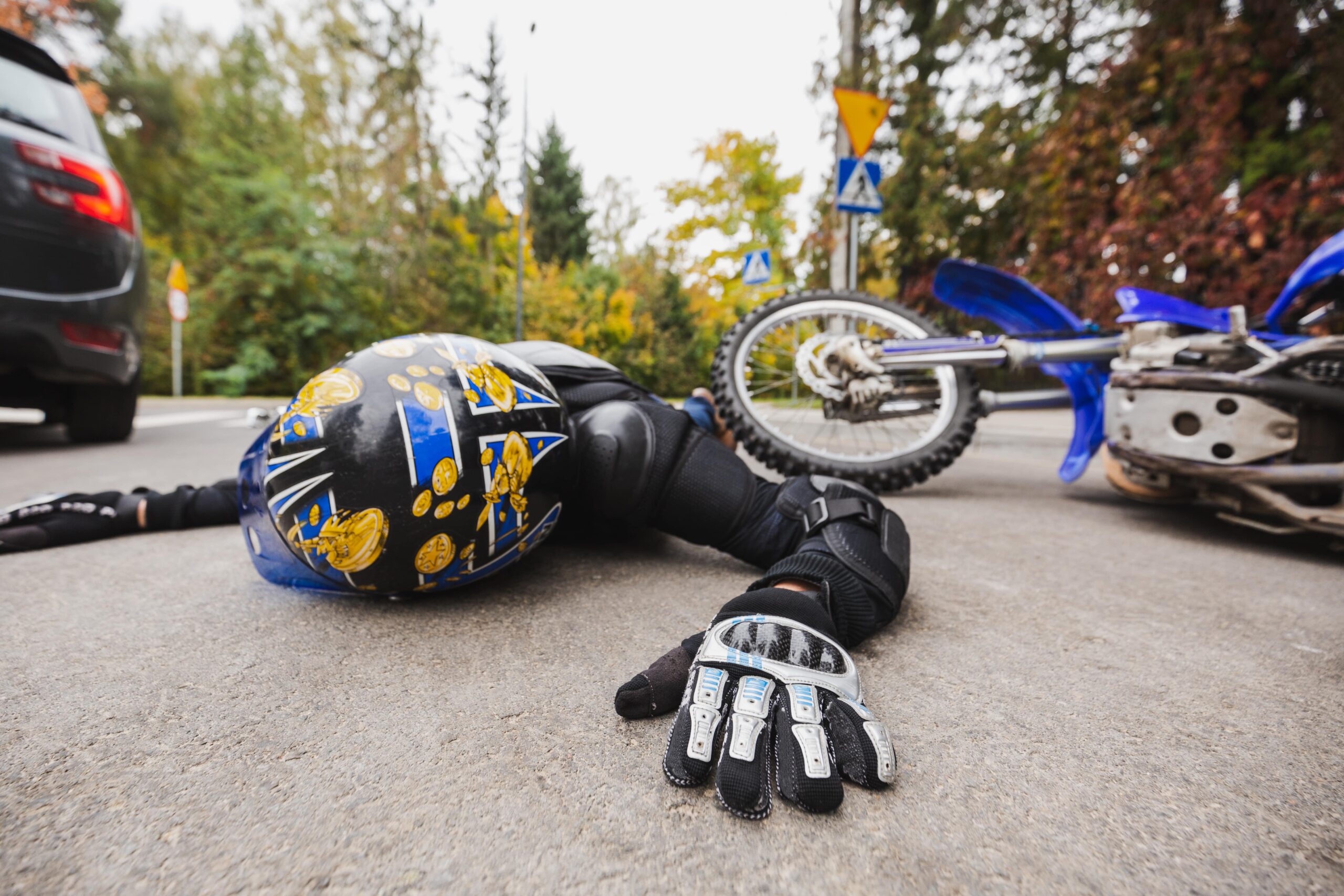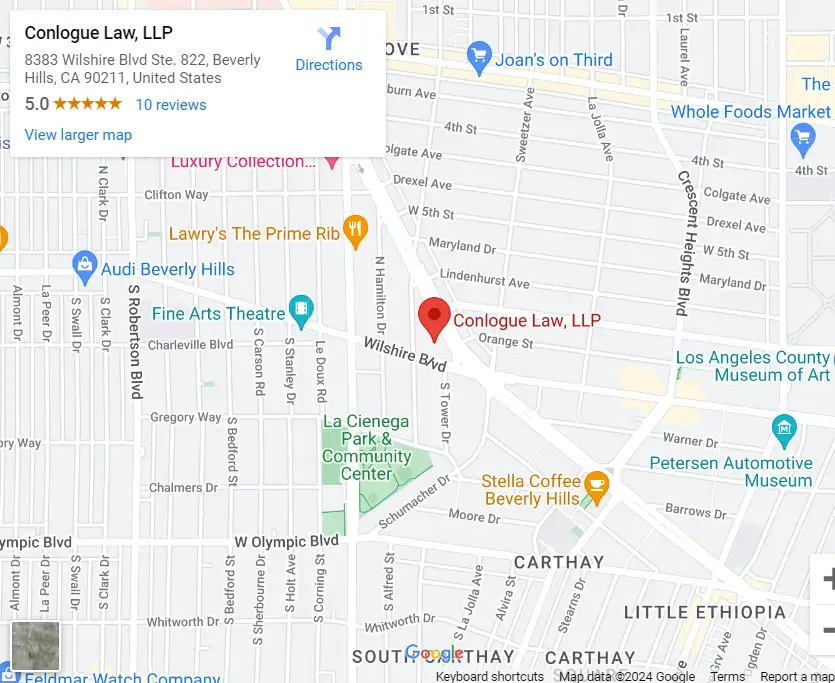What Could You Be Up Against in a Motorcycle Accident Case?
Motorcycle accidents often happen because of common issues on the road. Things like sudden lane changes, driving too close behind, and not giving the right of way make it easier for crashes to happen. If you’ve been hurt in one of these accidents, a Los Angeles motorcycle accident lawyer can help you understand what you can do next and how to get compensation.
Quick Summary:
- California has specific laws to protect motorcyclists, such as requiring helmets for all riders and passengers. To ride in California, motorcyclists must first get a learner’s permit by passing a vision test and a knowledge exam. California is the only state that officially permits lane splitting, where motorcyclists can ride between lanes of slow-moving traffic.
- Under California’s “pure comparative negligence” rule, the fault for an accident can be shared among all parties involved. Injured individuals can still recover damages even if they are partially at fault. The compensation is reduced based on the injured party’s degree of fault. In cases with multiple responsible parties, economic damages can be collected from any one party, while non-economic damages must be divided proportionally.
- Severe injuries, disputed liability, and biases against motorcyclists often complicate motorcycle accident claims. Insurers may try to shift blame to the rider, especially if no witnesses are present. The lack of protection on motorcycles, such as airbags or seat belts, can further complicate liability and claims for compensation.
- Insurance companies often use tactics to minimize payout amounts, such as delaying claims, offering low initial settlements, and questioning liability. They may also request recorded statements from accident victims, which can be used against them. It’s essential to have legal representation to protect your interests when dealing with insurance adjusters.
What are California’s Motorcycle Laws?
California’s motorcycle laws protect riders and ensure fair compensation in the event of an accident. State laws require riders to follow specific safety regulations, such as having a permit or license and wearing a helmet. Understanding these laws is essential for the legal process and protecting your rights.
- California Requires a Learner’s Permit: To get a motorcycle license in California, you must first apply for a learner’s permit from the DMV. It has two tests, namely the vision test and the knowledge exam. The knowledge exam covers road rules for motorists, safety guidelines, and responsibilities. Permits allow practice riding except for freeway, nighttime, and no passengers.
- Pass A Riding Test: To get a license in California the applicant must pass a riding test. Riders under 21 are required to complete and pass the California Motorcyclist Safety Program (CMSP). This is a training course offered by the California Highway Patrol. CMSP includes classroom instruction and hands-on training for safe driving.
- Have a Helmet When You Ride: California Vehicle Code §27803 states that all motorcyclists and passengers must wear helmets. This complies with U.S. Department of Transportation standards to reduce injury risk. The criteria include proper fit, secure straps, and other guidelines outlined by federal regulations.
- Secure Handlebars: California law has set restrictions for handlebars and seat positioning for safety purposes. Handlebars mustn’t be set higher than six inches above the shoulder. The motorcycle seat shouldn’t allow the rider’s feet to touch the ground while seated. Restrictions ensure riders maintain proper control and balance, especially during stops or sudden maneuvers.
- California Has a Lane Splitting Law: California became the first state to officially legalize lane splitting, a practice where motorcyclists ride between lanes of slow-moving or stopped traffic on highways. The law specifies that lane splitting is permissible only on roadways with two or more lanes traveling in the same direction. This practice is intended to improve traffic flow and provide motorcyclists with a safer alternative to sitting in congested traffic, where they are more vulnerable to rear-end collisions.
What is Comparative Negligence in California Law?
Comparative negligence in California law is a legal principle allocating fault among all parties involved in an accident based on their respective contributions to the incident. Under California’s “pure comparative negligence” system, even if a plaintiff is partially at fault, they can still recover damages, but the amount will be reduced by their percentage of responsibility. This framework ensures a fair distribution of liability, allowing injured parties to seek compensation even in complex, shared-fault situations.
How is Fault Determined in a Comparative Negligence Scenario?
Determining the percentage of fault in an accident requires a thorough investigation into the incident’s specific circumstances. That involves gathering evidence from accident reports, witness testimonies, and professional analyses to establish the actions contributing to the collision. Both parties in a case will need to present evidence to support their claims, as the opposing side may argue that the plaintiff shares some responsibility, which can affect the total amount of financial compensation awarded.
How Does Comparative Negligence Work in Multiple Party Faults?
When multiple parties share responsibility for your losses, it complicates the process of seeking fair compensation. Understanding the division of economic and non-economic losses becomes important. California’s joint and several liability rule allows you to recover most of your economic losses (90%) from any one party, even if they weren’t fully at fault.
However, for non-economic damages, you must pursue a proportional recovery from each liable party, such as 45% from each. This system ensures you are compensated fairly, though navigating liability details can be complex.
What are the Most Common Tactics Used in Motorcycle Accident Lawsuits?
Motorcycle accident lawsuits involve insurance company strategies. These strategies aim to establish fault and secure fair compensation for injured riders. However, there are incidences wherein companies try to delay compensation actively.
Insurance companies often use tactics to minimize their financial liability when dealing with personal injury claims. These approaches can pressure claimants into accepting unfair compensation or abandoning their claims altogether.
- Delaying Claims: Insurance companies often delay the claims process to discourage claimants from pursuing compensation. By stalling the investigation or dragging out negotiations, insurers hope to create frustration, leading claimants to accept a low settlement or give up altogether. This delay tactic can also increase the financial burden on claimants, who may face mounting medical bills and lost wages while waiting for a resolution.
- Offering Low Settlements: Offering quick, low settlements immediately is a common insurance tactic. The claimant most likely doesn’t understand the extent of their injuries and would often accept it. Insurance adjusters downplay injury and suggest that the offer is fair. They would also actively discourage legal counsel.
- Questioning Liability or Damages: Insurance companies often question the responsibility or size of damages to lower the amount they have to pay. By doubting the claim or the damage’s seriousness, they try to weaken the person’s case, which can lead to a smaller payout or the case being dismissed.
- Asking for Statements: Be careful if an insurance adjuster asks for a recorded statement after an accident, especially when you’re still dealing with what happened. They might use your words against you, even if you think you’re just answering a simple question. Adjusters work for the insurance company, not for you. It’s usually a good idea to politely refuse to give a recorded statement until you have a lawyer.
What are the Challenges Specific to Motorcycle Accident Cases?
Motorcycle accident cases come with unique challenges due to the distinct nature of riding and the complexity of legal proceedings. These cases often involve more severe injuries, disputed liability, and insurance biases that complicate recovery efforts. Below are some common challenges faced by motorcycle accident victims:
- Severe Injuries: Motorcyclists are more exposed than drivers of enclosed vehicles, leading to higher chances of catastrophic injuries in the event of a crash. The severity of these injuries can complicate claims, as the victim may need long-term care and face ongoing medical expenses, which must be adequately accounted for in a compensation settlement.
- Determining Liability: Proving fault in motorcycle accident cases can be more difficult than in car accidents due to the shared responsibility between parties. Insurance adjusters or defense attorneys may claim that the motorcyclist was speeding or not following traffic laws, especially if there are no witnesses.
- Insurance Bias Against Motorcyclists: Motorcycle riders often face stereotypes that can hurt their chances of recovering full compensation. Insurance companies may unfairly characterize motorcyclists as reckless or overly aggressive, even though many accidents are caused by other drivers’ negligence.
- Lack of Protection for Riders: Motorcycles lack standard vehicle protections like seatbelts. That can make it harder to argue that the accident wasn’t preventable. Protection absence results in a complex case since insurers zero in on the lack of safety. That can further hinder the claim’s value.
Got In a Motorcycle Accident? Call a Los Angeles Motorcycle Accident Lawyer Right Now!
Motorcycle accidents result from left-turn collisions, lane splitting, and negligence. In lawsuit strategies, gathering detailed evidence, accident reconstruction, and countering biases are used to support the case. These tactics help clarify liability and seek fair compensation for injured riders.
Our Los Angeles motorcycle accident lawyer at Conlogue Law, LLP, can guide you through the legal process, helping you understand your rights and options after an accident. Our attorney can gather and organize evidence, including medical records and witness statements, to build a strong compensation case.
Whether it’s vehicular accidents, premises liability, or wrongful death, our motorcycle accident lawyer in Los Angeles can handle it for you. Schedule a free consultation with Conlogue Law, LLP, right now.








